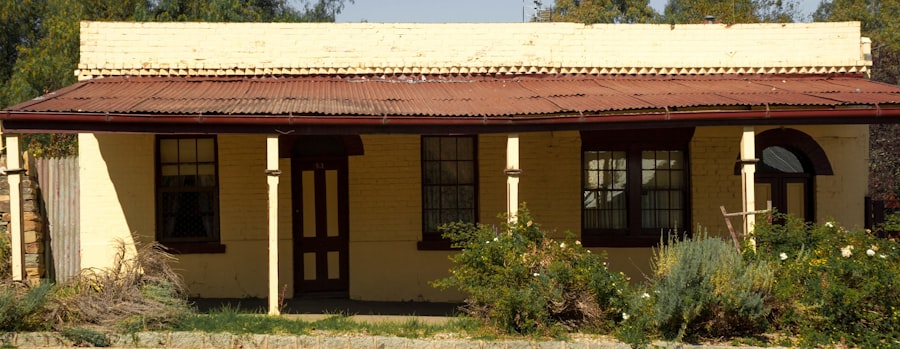FHA loans, or Federal Housing Administration loans, are a type of mortgage designed to help individuals and families achieve homeownership, particularly those who may not qualify for conventional financing. These loans are backed by the government, which reduces the risk for lenders and allows them to offer more favorable terms to borrowers. When it comes to manufactured homes, FHA loans provide a unique opportunity for prospective homeowners.
Manufactured homes, often referred to as mobile homes, are built in a factory and transported to a site, making them a more affordable housing option for many. The FHA recognizes the growing demand for manufactured homes as a viable housing solution and has established specific guidelines for financing these properties. To qualify for an FHA loan for a manufactured home, the property must meet certain criteria, including being built after June 15, 1976, and meeting the standards set by the Department of Housing and Urban Development (HUD).
This ensures that the home is safe, secure, and suitable for living. Additionally, the home must be affixed to a permanent foundation and classified as real property rather than personal property. Understanding these requirements is crucial for potential borrowers looking to navigate the FHA loan process successfully.
Key Takeaways
- FHA loans provide accessible financing options specifically tailored for manufactured homes.
- They offer benefits like lower down payments and more flexible credit requirements compared to conventional loans.
- Eligibility includes criteria related to the home’s age, location, and borrower creditworthiness.
- FHA loans differ from conventional loans by having government backing and more lenient qualification standards.
- Understanding application steps and common misconceptions can help borrowers maximize the advantages of FHA loans for manufactured homes.
Advantages of FHA Loans for Manufactured Homes
One of the primary advantages of FHA loans for manufactured homes is the lower down payment requirement. While conventional loans often require a down payment of 20% or more, FHA loans allow borrowers to put down as little as 3.5%. This lower barrier to entry makes homeownership more accessible for individuals and families who may not have substantial savings.
Furthermore, FHA loans are designed to accommodate borrowers with lower credit scores, typically allowing scores as low as 580 to qualify for the 3.5% down payment option. This flexibility can be particularly beneficial for first-time homebuyers or those recovering from financial setbacks. Another significant advantage of FHA loans is their competitive interest rates.
Because these loans are backed by the government, lenders are often willing to offer lower interest rates compared to conventional loans. This can result in substantial savings over the life of the loan, making monthly payments more manageable for borrowers. Additionally, FHA loans come with various mortgage insurance options that can be tailored to fit individual financial situations.
This combination of lower down payments, competitive interest rates, and flexible mortgage insurance makes FHA loans an attractive option for those looking to purchase manufactured homes.
Eligibility Requirements for FHA Loans for Manufactured Homes

To qualify for an FHA loan for a manufactured home, borrowers must meet specific eligibility requirements set forth by the FHFirst and foremost, applicants must have a valid Social Security number and be a legal resident of the United States. Additionally, they must demonstrate a steady income and employment history, typically requiring at least two years of consistent employment in the same field. Lenders will assess the borrower’s debt-to-income (DTI) ratio, which should ideally be below 43%, although some lenders may allow higher ratios depending on other compensating factors.
Creditworthiness is another critical factor in determining eligibility for an FHA loan. While the FHA allows borrowers with credit scores as low as 580 to qualify for the 3.5% down payment option, those with scores between 500 and 579 may still be eligible but will need to provide a larger down payment of at least 10%. It’s essential for potential borrowers to review their credit reports and address any discrepancies before applying for an FHA loan.
Additionally, the manufactured home itself must meet specific criteria, including being built after June 15, 1976, and being permanently affixed to a foundation. These requirements ensure that the home meets safety and quality standards set by HUD.
Differences Between FHA Loans and Conventional Loans for Manufactured Homes
| Feature | FHA Loans for Manufactured Homes | Conventional Loans for Manufactured Homes |
|---|---|---|
| Down Payment | Typically 3.5% | Usually 5% to 20% |
| Credit Score Requirement | Minimum around 580 | Minimum around 620 to 700 |
| Loan Limits | Subject to FHA county loan limits | Varies by lender and property value |
| Mortgage Insurance | Required upfront and annual mortgage insurance premiums | Private mortgage insurance required if down payment is less than 20% |
| Property Requirements | Must meet FHA standards for manufactured homes (e.g., built after 1976, HUD code) | Must meet conventional loan property standards, often stricter appraisal requirements |
| Loan Terms | Typically 15 or 30 years | Varies widely, often 15, 20, or 30 years |
| Interest Rates | Generally lower due to government backing | May be higher, depends on credit and market conditions |
| Eligibility | Available to first-time and repeat buyers with qualifying credit | Available to buyers with stronger credit profiles |
When comparing FHA loans to conventional loans for manufactured homes, several key differences emerge that can significantly impact a borrower’s decision-making process. One of the most notable distinctions is the down payment requirement. As previously mentioned, FHA loans allow for a down payment as low as 3.5%, while conventional loans typically require at least 5% to 20%.
This difference can make FHA loans more appealing to first-time homebuyers or those with limited savings. Another critical difference lies in credit score requirements. Conventional loans often necessitate higher credit scores—usually around 620 or above—making it challenging for individuals with less-than-perfect credit histories to secure financing.
In contrast, FHA loans are more lenient regarding credit scores, allowing borrowers with scores as low as 580 to qualify with a minimal down payment. This flexibility can open doors for many potential homeowners who might otherwise be excluded from the housing market due to stringent conventional loan requirements.
How to Apply for an FHA Loan for a Manufactured Home
Applying for an FHA loan for a manufactured home involves several steps that require careful preparation and documentation. The first step is to find an approved lender who specializes in FHA loans and has experience with manufactured home financing. Borrowers should conduct thorough research and compare lenders based on their rates, fees, and customer service reviews.
Once a lender is selected, applicants will need to complete a loan application form and provide various documents, including proof of income, tax returns, bank statements, and information about existing debts. After submitting the application, the lender will conduct a thorough review of the borrower’s financial situation and credit history. This process may involve obtaining additional documentation or clarification on specific items.
Once approved, the lender will issue a loan estimate detailing the terms of the loan, including interest rates, monthly payments, and closing costs. It’s essential for borrowers to review this estimate carefully and ask questions if anything is unclear. Following this step, an appraisal will be conducted on the manufactured home to ensure it meets FHA standards before closing on the loan.
Common Misconceptions About FHA Loans for Manufactured Homes

Despite their advantages, there are several misconceptions surrounding FHA loans for manufactured homes that can deter potential borrowers from pursuing this financing option. One common myth is that FHA loans are only available for traditional site-built homes. In reality, the FHA has specific guidelines in place that allow manufactured homes to be financed through their programs, provided they meet certain criteria regarding construction standards and permanent foundations.
Another misconception is that FHA loans are only suitable for low-income borrowers or those with poor credit histories. While it is true that these loans cater to individuals with lower credit scores and more flexible income requirements, they are also accessible to a broader range of borrowers. Many middle-income families and first-time homebuyers benefit from the favorable terms offered by FHA loans without necessarily falling into low-income categories.
This misunderstanding can lead potential buyers to overlook an excellent opportunity for affordable homeownership.
Tips for Getting the Most Out of an FHA Loan for a Manufactured Home
To maximize the benefits of an FHA loan for a manufactured home, prospective borrowers should consider several strategies during the application process. First and foremost, it’s crucial to improve one’s credit score before applying if possible. Paying down existing debts, making timely payments on bills, and correcting any inaccuracies on credit reports can significantly enhance creditworthiness and potentially lead to better loan terms.
Additionally, borrowers should shop around and compare multiple lenders before settling on one. Different lenders may offer varying interest rates and fees associated with FHA loans; therefore, obtaining quotes from several institutions can help identify the most favorable terms available. It’s also wise to ask about any special programs or incentives that lenders may offer specifically for manufactured homes or first-time buyers.
The Future of FHA Loans for Manufactured Homes
As housing markets evolve and affordability becomes an increasingly pressing issue across the United States, the future of FHA loans for manufactured homes appears promising. The demand for affordable housing solutions continues to rise due to factors such as population growth and economic fluctuations that impact traditional housing markets. As a result, government-backed financing options like FHA loans are likely to remain relevant in addressing these challenges.
Moreover, ongoing efforts by HUD and other agencies aim to streamline processes related to manufactured home financing further. Innovations in technology may lead to more efficient application processes and improved access to information about available programs. As awareness grows regarding the benefits of manufactured homes as an affordable housing option, it is expected that more individuals will explore FHA loans as a viable pathway toward homeownership in this sector.
In conclusion, understanding FHA loans specifically designed for manufactured homes can empower potential homeowners with knowledge about their options in today’s housing market. By recognizing the advantages these loans offer—such as lower down payments and flexible credit requirements—borrowers can make informed decisions that align with their financial goals while contributing positively to their communities through homeownership.



